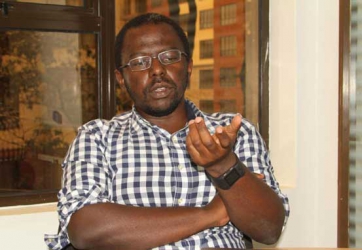×
The Standard e-Paper
Smart Minds Choose Us

NAIROBI, KENYA: Inside the offices of Node Africa along Nairobi’s lush and tranquil Riara Road, a clear jar sits on a table. It is crammed with Sh50 and Sh100 notes. When it gets full, this ‘Swear Jar’ is emptied towards a charity kitty.
How often it gets emptied depends on how difficult the days before have been for the team behind the young cloud start-up. During our visit, the jar is about half full. But times have been worse.